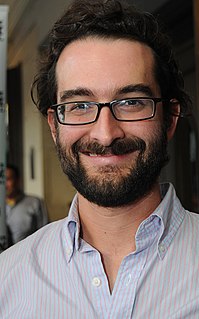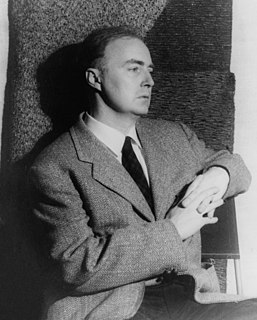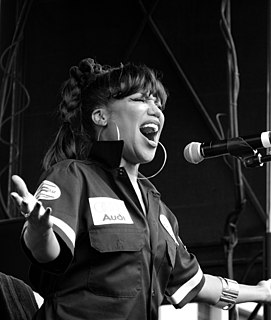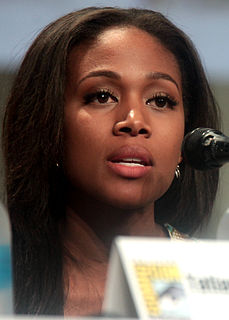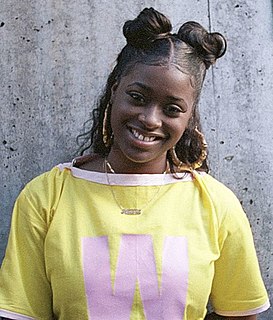A Quote by James McBride
As a journalist, I never critiqued anyone. I never review books. I've never felt qualified as a musician to say whether someone is a good musician or a bad musician. What happens with Black writers and Black artists is that if you're critiqued, for example, by a Black historian who wants to get his name on the cover of "The New York Times," and he says something, like, wacky, well, he'll get his name on the cover of "The New York Times" and he might get tenure, and your career suffers.
Quote Topics
Anyone
Artists
Bad
Bad Music
Black
Black Art
Books
Career
Cover
Example
Felt
For Example
Get
Good
Good Music
Happens
His
Historian
Journalist
Like
Might
Musician
Name
Never
New
New York
New York Times
Qualified
Review
Say
Says
Someone
Something
Suffers
Tenure
Times
Wacky
Wants
Well
Whether
Writers
York
Your
Related Quotes
Stephen King writes mass fiction but gets reviewed by the New York Times and writes for the New Yorker. Critics say to me, "Shut up and enjoy your money," and I think, OK, I'll shut up and enjoy my money, but why does Stephen King get to enjoy his money and get reviewed on the cover of the New York Times Sunday Book Review?
My thing with New York was that it felt so insular. When I went to L.A., everybody I knew was a cool, amazing musician. In New York, they'd be hunkered down trying to form a band. But in L.A., guys in bands were also playing with other artists, touring with other artists, and collaborating with other artists.
Recently it's become much to my surprise, something that does happen. For example, I used to get almost all of my stories, and it's probably still true, from newspapers. Primarily from The New York Times. No one ever really thinks of The New York Times as a tabloid newspaper and it isn't a tabloid newspaper. But there is a tabloid newspaper within The New York Times very, very often.
I did not disregard my culture, if I did, it was the white American culture, and I accepted my true culture, when I accepted Mohammed Ali, because this is a black name, Islam is the black man's religion, and so I would like to say, that I would like to clarify that point that I reclaimed my real culture, and that's being a black man and wearing a black name with a black body, and not a white name, so I would never say that I didn't disown my culture.
White people scare the crap out of me. I have never been attacked by a black person, never been evicted by a black person, never had my security deposit ripped off by a black landlord, never had a black landlord, never been pulled over by a black cop, never been sold a lemon by a black car salesman, never seen a black car salesman, never had a black person deny me a bank loan, never had a black person bury my movie, and I've never heard a black person say, 'We're going to eliminate ten thousand jobs here - have a nice day!'
I never expected to be in the papers. I personally never expected to be in the papers. The height of my ambition for these books was, well frankly, to get reviewed. A lot of children's books don't even get reviewed.. forget good review, bad review. Personally, no, I never expected to be in the papers so it's an odd experience when it happens to you .
There's a reason why she left them, Lauren," he says. His voice is deep, and it rumbles. "What's your name?" "Um..." I don't know why I hesitate. But "Beatrice" just doesn't sound right anymore. "Think about it," he says, a faint smile curling his lips. " You don't get to pick again." A new place, a new name. I can be remade here. "Tris," I say firmly.
Like for 'Black Nails,' I just had black nails - and I never have black nails. It was my first and last time getting black nails. And that's so not normal for me. So when you're recording, you're up at the mic and you gotta name the file, so I just look down and I'm like, 'Black Nails!' That's literally what it was.




